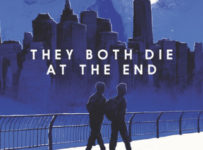
Stephen King's first short story collection is from the olden days when genre short stories ruled the earth, and people would just read them where they lay — in the pages of Penthouse, no less, when you really could read them for the articles. Of Night Shift's 20 stories, a full 80% were published ahead of collection, and half of them were published ahead of Carrie. The short story mode is completely different to the novel, and King was rightfully confident in this early selection. There are some remarkably strong entries in here, several of which became films — in at least one case, entirely too many films — the embryos of later works, and a couple of continuations of ‘Salem's Lot (which are now published in modern reprints of same).
Night Shift is a collection of short stories for people who no longer believe in them, and because of the form and era, not all endings have to be neat or happy, or undisturbing. King has a bit of everything in here, and few weaknesses.
Opening with "Jerusalem's Lotâ€, an extended homage to the movement of the worm, King provides an alternate take on everyone's favourite abandoned town. Vividly illustrated while only hinting at the shape of the madness the Boone family is subjected to, it's a fine mood piece. Later in the collection King offers a more conventional sequel to ‘Salem's Lot in "One For the Roadâ€, about the dangers of getting stuck in a snowstorm on the outskirts of a ghost town. In that regard it's quite similar to "Children of the Corn†— which to date has spawned ten movies — but they have different feels. "Children of the Corn†exists without precedent and tells much of its story through implication rather than exposition. You might not be able to tell it from his longer works, but in Night Shift, King is a firm believer that less is more.
An early stand out is "Night Surfâ€, which would go on to inspire The Stand, King's first true "giant†novel. This much shorter incarnation embodies much of what King's stories have to offer. Many of the books in this collection exist as second acts: no need to set up the action, and endings that are often either open ended, ambiguous, or just moments away from total carnage.
"Night Surf†begins after Captain Trips (a name that would endure across the years) has struck, one of those sweet lulls in a post-apocalyptic scenario where people have settled into a sort of routine but don't know if they're safe yet. It scratches an itch that is not often visited, and one that King himself would only briefly indulge himself in The Stand proper.
Another benefit of short stories is that some of these concepts could not sustain a novel or a film: "The Manglerâ€, about a possessed laundry press, is a piece of genius in short form; it reveals everything that it needs to without trying to give a sort of history to the machine in question, and it manages to maintain its sense of menace. That said, it is one of the stories in Night Shift that became a movie, directed by Tobe Hooper, no less.
"Trucksâ€, which King himself directed as Maximum Overdrive, is one of the true highlights. Without the need for the structure of a film, "Trucks†presents a "The Mistâ€-like story of a group of people stranded in a diner as they try to resist the murderous intent of sentient vehicles. With no introduction or conclusion, it's a thrilling and ominous sound-byte of a story. King may have written Maximum Overdrive but, by his own admission, he had no idea what he was doing.
One of the more bitter stories King presents is "Quitters, Inc.â€, a deeply uncomfortable story about the willpower needed to quit smoking. The titular corporation doesn't have any obligation to the reader to be morally upright, and so it isn't. It's not even a metaphor for unsavoury business practises, it's just … unsavoury business practice, focusing on how results matter more than procedure. Is a score really settled if you're not the one paying the price? "Quitters, Inc.†has bite, and along with "Graveyard Shiftâ€, suggests King's sympathies lie with the proletariat more than the bourgeoisie.
King surprises most of all with the final story, "The Woman in the Roomâ€, which deals with the horrors of mortality as they pertain to terminal illness and the final push. It's not scary at all, but it is quite affecting, and it sparked the relationship between King and Frank Darabont that continues to this day.
Of course, not everything in Night Shift is great. None of the weaker entries go too long, but you could go to your grave without having read "The Man Who Loved Flowers†and be no worse off; "Strawberry Spring†offers a conclusion that was possibly shocking once, years before King ever dusted it off; "The Boogeyman†doesn't properly click. Three lesser stories out of twenty is a good ratio for a collection, especially one from a single author.
Night Shift is a relic of a bygone era, but it's the sort that you polish and give pride of place to. King doesn't have a 100% hit rate with these pieces, but there are several true classics in here, some of which are genuinely disquieting. Early in his career, King was already dominant; it is little surprise that with so much strong material so soon that he was able to capture the American imagination. Night Shift is a firm distillation of King's voice: while there's no reason not to start from Carrie, you can dip into almost anything in Night Shift to get an accurate first taste of his work.


